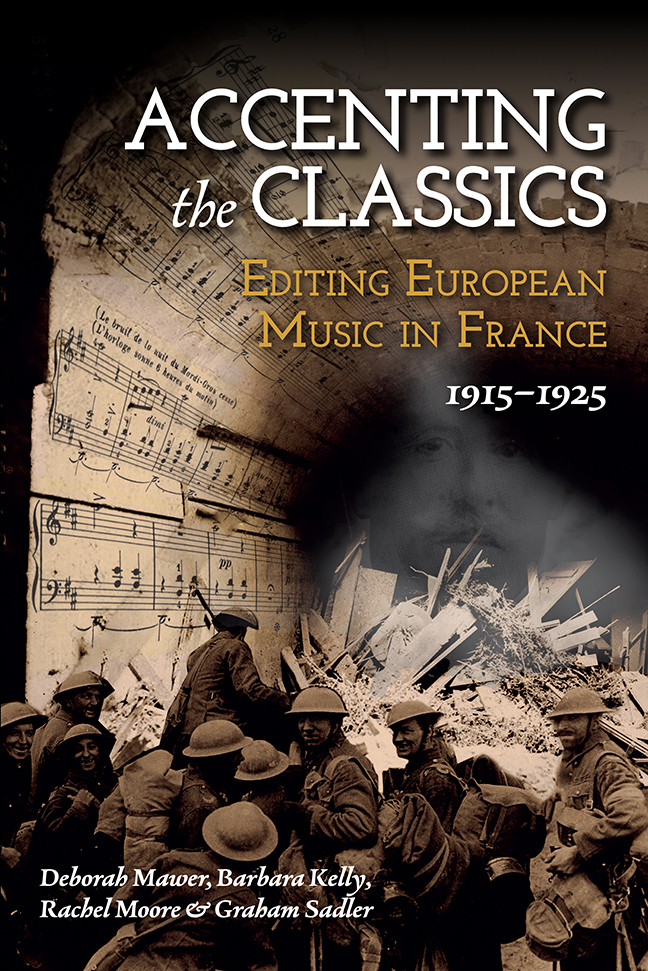Book contents
- Frontmatter
- Contents
- List of Figures
- List of Tables
- Notes on Co-authors
- Acknowledgements
- List of Abbreviations
- Note on the Text
- Introduction
- Part I Durand and His Édition Classique
- Part II Composer–Editor Case Studies
- Part III Beyond Editing: Pedagogy, Performance, Composition
- Afterword
- Select Bibliography
- Index
Afterword
Published online by Cambridge University Press: 10 January 2024
- Frontmatter
- Contents
- List of Figures
- List of Tables
- Notes on Co-authors
- Acknowledgements
- List of Abbreviations
- Note on the Text
- Introduction
- Part I Durand and His Édition Classique
- Part II Composer–Editor Case Studies
- Part III Beyond Editing: Pedagogy, Performance, Composition
- Afterword
- Select Bibliography
- Index
Summary
Jacques Durand's Édition Classique was born in response to a moment of national crisis when the French government banned the sale of ‘enemy’ publications. It gave Durand the chance to exploit a sudden and substantial gap in the market. The project was not unique despite initial hopes that publishers would work together to establish a single French edition of European classics. In the event, Durand's was one of several rival French editions that suddenly entered the musical marketplace. This study, based on extensive archival research, has shown the myriad ways in which it was distinctive and highly successful in remaining a viable collection of editions with numerous reprints well into the late twentieth century. The project was also both culturally and musically revealing about the war and post-war period as European nations asserted their musical priorities and institutions established mechanisms to protect and project their musical values, assets and markets.
Durand's achievement
Although the Édition Classique was not unique, Jacques Durand had influence as the head of the syndicate of publishers. He also had the most notable contemporary composers on his books, many of whom became editors of the Édition Classique: Saint-Saëns, Fauré, Debussy, Ravel, Dukas and Roussel. That some of them were his classmates at the Paris Conservatoire shows that he built on the network that his father had established before him. A number of these composers had previous experience of editing (Saint-Saëns, Dukas and even Debussy), but none could claim to be experts in this activity. Durand also included key teachers at the Conservatoire and prominent performers, all of whom ensured the dissemination and circulation of the edition for generations. While this gave the Édition Classique prominence, it did not protect some of his editors from criticism. Furthermore, due to wartime restraints and the urgency of replacing Peters and Breitkopf editions, few of the editors were able to consult original sources. There were exceptions of course, notably Debussy's scrutiny of Chopin manuscripts that belonged to Saint-Saëns, and Dukas's and Ropartz's consultation of the composers’ own editions for their Scarlatti and Handel volumes. The purpose was not to establish a scholarly edition, but to embed the Édition Classique within the musical marketplace as a reliable, cheap and easily available body of editions. Durand's policy of including prominent names shows that he had a keen eye for marketing and knew that recognisable names would improve sales.
- Type
- Chapter
- Information
- Accenting the ClassicsEditing European Music in France, 1915-1925, pp. 323 - 330Publisher: Boydell & BrewerPrint publication year: 2023



